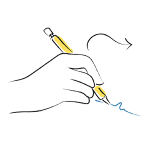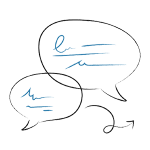Lorem Ipsum is simply dummy text of the printing and typesetting industry














Assessing various aspects of language (semantics, syntax, pragmatics etc) and other areas that impact its development i.e Sensory motor skills of the body, Active listening, Ideation, Executive Functioning through various informal methods and experiential processes.
Comprehensive and in-depth assessment of various oral sensory and oro-motor structures and functions, and sub-aspects of Speech viz. Articulation, Resonance, Phonation, Prosody, Respiration.
Comprehensive and in-depth assessment of various oral sensory and oro-motor structures and functions, speech sound production error type, and patterns using a set of specialized tools and techniques.
Assessing aspects of Speech and language Fluency, obtaining qualitative and quantitative information viz. Types of blocks, Severity of Stuttering, Fears and Avoidance Behaviors if any, etc.
Comprehensive and in depth assessment of various Oro-motor Structures and Functions related to Feeding and Swallowing, assessing the feeding milestones, with respect to texture, consistency and utensils used for feeding.
Assess English Language Proficiency in children who have English as their second language....
Language Disorder associated with acute or degenerative Neurological Disorder. We assess the Language Production, Auditory Comprehension, Repetition, Naming, Reading, and Writing skills
Speech Disorder associated with acute or degenerative Neurological Disorder. We assess the Oro-motor Structures, their Accuracy, Strength, and Range of Motion, also various sub-aspects of Speech i.e. Articulation, Resonance, Phonation, Prosody, Respiration.
Assessing the process of Feeding and or Swallowing non-instrumentally using various food textures and consistencies in individuals with neurological disorders and or mechanical disorders.
Assessing individuals with Traumatic Brain Injury, Dementia, and Right Hemisphere Damage for Cognitive Communicative Skills viz. Memory, Executive Functioning, Verbal Reasoning, Problem Solving etc.
Assessing individuals with voice disorders, comparing their voice to age and gender referenced normative Pitch of Voice, Intensity and Quality.
Assessing aspects of Language Fluency, obtaining qualitative and quantitative information viz. Types of blocks, Severity of Stuttering, Fears and Avoidance Behaviors if any etc.
- Understanding and expressing themselves using words age appropriately.
- Following directions/instructions.
- Asking and answering questions, narrating experiences, sharing details.
- Engaging in appropriate conversations with friends, and family.
- Interacting and playing with peers and being a part of a group in various social settings.
- The skill to accept and eat different textures and consistencies of various foods.
- Oromotor skills like blowing, sucking and chewing
- Gross motor (physical) skills are those which require whole body movement and which involve the large (core stabilizing) muscles of the body to perform everyday functions, such as standing and walking, running and jumping, and sitting upright at the table. They also include eye-hand coordination skills such as ball skills (throwing, catching, kicking) as well as riding a bike or a scooter and swimming.
- Fine motor skills involve the use of the smaller muscle of the hands, commonly in activities like using pencils, scissors, construction with lego, doing up buttons and opening lunch boxes.
- Attention is the ability to obtain and sustain appropriate attention to a task. This can be influenced by motivation, self-esteem, sensory integration, practice, language difficulties and any existing diagnosis. In Therapy we provide students with multiple sensory experiences and cognitive strategies to help them sustain attention and ignore distractions
- Sensory Processing – or Integration as it is also known – is the effective registration (and accurate interpretation) of sensory input in the environment (including one’s body). When children are efficient in their processing, appropriate responses to the environment around them occur and is demonstrated by appropriate skill mastery, behavior, attention and self regulation (controlling their physical activity, emotional and cognitive responses). Children are able to sit and attend to the important pieces of information in a classroom and therefore have a good chance at achieving their academic potential. Effective sensory processing allows children to work, play and learn.
- Visual perception refers to the brain’s ability to make sense of what the eyes see.This is not the same as visual acuity which refers to how clearly a person sees (for example “20/20 vision”). A person can have 20/20 vision and still have problems with visual perceptual processing.
Good visual perceptual skills are important for many everyday skills such as reading, writing, completing puzzles, cutting, drawing, completing math problems, dressing, finding your sock on the bedroom floor as well as many other skills.
- Writing is often thought of as the physical performance of handwriting in order to put pencil to paper to record words, but in its broader context is used to mean the output of pencil skills (that is, written communication on paper or more recently in an IT format). The components involved in written communication are the physical performance of handwriting or typing, as well as the cognitive (thinking skills) of spelling, grammar and story planning.
- Self care skills are the everyday tasks undertaken to be ready to participate in life activities (including dressing, eating, cleaning teeth, typing shoe laces and more). They are often referred to as the activities of daily living (ADL’s).
- Play is voluntary engagement in self motivated activities that are normally associated with pleasure and enjoyment. Play may consist of amusing, pretend or imaginary, constructive, interpersonal (play with others) or intrapersonal (solitary play) interactions. Play is the way that children learn about the environment, their bodies and their place in the world around them.
- Language Disorder associated with Acute Neurological Disorder like Stroke or Brain Injury, or degenerative Neurological Disorder like Parkinson's Disease Or Alzheimer’s Disease
- We assess the Language Production, Auditory Comprehension, Repetition, Naming, Reading, and Writing skills
- Speech Disorder associated with Acute Neurological Disorder like Stroke or Brain Injury, or degenerative Neurological Disorder like Parkinson's Disease Or Alzheimer’s Disease
- We assess the Oro-motor Structures and also various aspects of Speech and it’s clarity.
- Understanding and expressing themselves using words age appropriately.
- Following directions/instructions.
- Asking and answering questions, narrating experiences, sharing details.
- Engaging in appropriate conversations with friends, and family.
- Interacting and playing with peers and being a part of a group in various social settings.
- The skill to accept and eat different textures and consistencies of various foods.
- Oromotor skills like blowing, sucking and chewing
- Language Disorder associated with Acute Neurological Disorder like Stroke or Brain Injury, or degenerative Neurological Disorder like Parkinson's Disease Or Alzheimer’s Disease
- We assess the Language Production, Auditory Comprehension, Repetition, Naming, Reading, and Writing skills
- Speech Disorder associated with Acute Neurological Disorder like Stroke or Brain Injury, or degenerative Neurological Disorder like Parkinson's Disease Or Alzheimer’s Disease
- We assess the Oro-motor Structures and also various aspects of Speech and it’s clarity.
- Gross motor (physical) skills are those which require whole body movement and which involve the large (core stabilizing) muscles of the body to perform everyday functions, such as standing and walking, running and jumping, and sitting upright at the table. They also include eye-hand coordination skills such as ball skills (throwing, catching, kicking) as well as riding a bike or a scooter and swimming.
- Fine motor skills involve the use of the smaller muscle of the hands, commonly in activities like using pencils, scissors, construction with lego, doing up buttons and opening lunch boxes.
- Attention is the ability to obtain and sustain appropriate attention to a task. This can be influenced by motivation, self-esteem, sensory integration, practice, language difficulties and any existing diagnosis. In Therapy we provide students with multiple sensory experiences and cognitive strategies to help them sustain attention and ignore distractions
- Sensory Processing – or Integration as it is also known – is the effective registration (and accurate interpretation) of sensory input in the environment (including one’s body). When children are efficient in their processing, appropriate responses to the environment around them occur and is demonstrated by appropriate skill mastery, behavior, attention and self regulation (controlling their physical activity, emotional and cognitive responses). Children are able to sit and attend to the important pieces of information in a classroom and therefore have a good chance at achieving their academic potential. Effective sensory processing allows children to work, play and learn.
- Visual perception refers to the brain’s ability to make sense of what the eyes see.This is not the same as visual acuity which refers to how clearly a person sees (for example “20/20 vision”). A person can have 20/20 vision and still have problems with visual perceptual processing.
Good visual perceptual skills are important for many everyday skills such as reading, writing, completing puzzles, cutting, drawing, completing math problems, dressing, finding your sock on the bedroom floor as well as many other skills.
- Writing is often thought of as the physical performance of handwriting in order to put pencil to paper to record words, but in its broader context is used to mean the output of pencil skills (that is, written communication on paper or more recently in an IT format). The components involved in written communication are the physical performance of handwriting or typing, as well as the cognitive (thinking skills) of spelling, grammar and story planning.
- Self care skills are the everyday tasks undertaken to be ready to participate in life activities (including dressing, eating, cleaning teeth, typing shoe laces and more). They are often referred to as the activities of daily living (ADL’s).
- Play is voluntary engagement in self motivated activities that are normally associated with pleasure and enjoyment. Play may consist of amusing, pretend or imaginary, constructive, interpersonal (play with others) or intrapersonal (solitary play) interactions. Play is the way that children learn about the environment, their bodies and their place in the world around them.
Lorem ipsum dolor sit amet, consectetur adipiscing elit. Ut elit tellus, luctus nec ullamcorper mattis, pulvinar dapibus leo.
Lorem ipsum dolor sit amet, consectetur adipiscing elit. Ut elit tellus, luctus nec ullamcorper mattis, pulvinar dapibus leo.
Lorem ipsum dolor sit amet, consectetur adipiscing elit. Ut elit tellus, luctus nec ullamcorper mattis, pulvinar dapibus leo.
Lorem ipsum dolor sit amet, consectetur adipiscing elit. Ut elit tellus, luctus nec ullamcorper mattis, pulvinar dapibus leo.
Lorem ipsum dolor sit amet, consectetur adipiscing elit. Ut elit tellus, luctus nec ullamcorper mattis, pulvinar dapibus leo.
Lorem ipsum dolor sit amet, consectetur adipiscing elit. Ut elit tellus, luctus nec ullamcorper mattis, pulvinar dapibus leo.
Quick Links
Contact
37/41 Ground Floor, Kala Bhavan Building, Mathew Road, Behind Royal Opera House, Mumbai – 400004
+91 98202 90290, +91 8369233133
connect@thepollyannapractice.com
© 2022 The Pollyanna Practice
Designed by Bombay Blokes
WhatsApp us